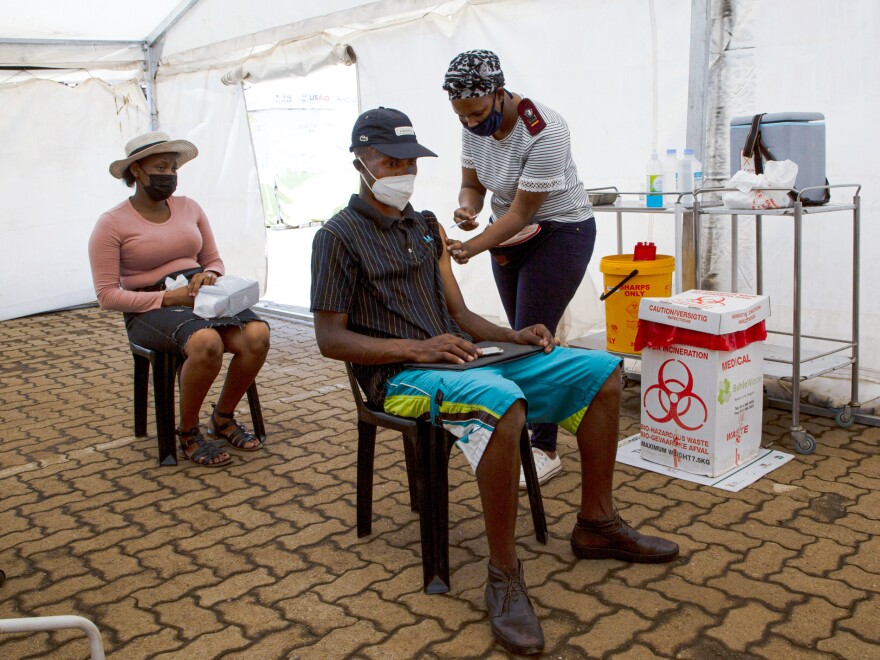Updated December 3, 2021 at 5:30 PM ET
Scientists in South Africa now have evidence that the omicron variant of the coronavirus spreads more than twice as quickly as the delta variant in that country.
"This wave seems much faster than the delta wave. And we thought the delta wave was really fast. It's unbelievable," says Juliet Pulliam, who directs South Africa's DSI-NRF Centre of Excellence in Epidemiological Modelling and Analysis at Stellenbosch University.
The analysis, presented at a scientific conference Friday, suggests the omicron variant is highly transmissible and also more capable of evading the immune system than delta.
"It looks like it may be more transmissible than delta," says Pulliam, who led the analysis. "There's a huge amount of uncertainty in the analysis, but I would say it looks likely."
On Thursday, Pulliam and her colleagues also published a study online showing that reinfections are more likely with omicron than with the delta or the beta variants. The study couldn't estimate the magnitude of this change — that is, how much more likely reinfections will be — but it shows quite strongly that this new variant is more capable of bypassing antibodies generated by a prior infection than previous variants.
The study also didn't address whether breakthrough infections would be more common with omicron, but many scientists believe that this will be the case.
Detected a week ago and likely to outcompete delta
Last week, scientists in South Africa and Botswana detected the new omicron strain of the coronavirus, one with about 50 mutations across its genome. By contrast, other variants, such as delta, have fewer than 20 mutations.
Since Nov. 24, when the variant was reported to the World Health Organization, health officials have detected omicron in more than a dozen countries across at least five continents. The variant poses a "very high" risk, the WHO said on Monday.
Over the past two weeks, omicron has spread to at least seven of South Africa's nine provinces, quickly overtaking the country's outbreak and thus, it appears, outcompeting delta, says virologist Pei-Yong Shi of the University of Texas Medical Branch in Galveston.
Delta has been the most contagious variant known. Within about nine months, it swept through all of the continents except Antarctica, pushing out other variants and causing huge surges in cases.
Omicron's mutations may help it evade the immune system
On top of that, people who already had COVID-19 could be more vulnerable to a second infection from this new variant.
Omicron carries many mutations that likely help the variant evade the immune system, says virologist Paul Bieniasz at Rockefeller University in New York. Some of these mutations exist in other variants but not all together in a single one. Bieniasz and his colleagues have already conducted lab research on key mutations that show up in omicron and found that they can help prevent antibodies from killing the virus.
"Based on that, we expect that omicron will be significantly resistant to antibodies that are circulating in individuals who are convalescent or who have had mRNA vaccines," Bieniasz says, referring to the technology used by the Pfizer-BioNTech and Moderna COVID-19 vaccines.
As a result, the vaccines will likely be less effective against this variant, he predicts. But his research so far also suggests that people can boost their protection — against any variant — by having three exposures to the virus. So that means either three doses of the vaccine or two doses after a natural infection.
That seems to broaden your defenses, says Shi, the virologist at the University of Texas Medical Branch. "After the third dose of the vaccine, our antibody profile inside our body becomes more capable of blocking the variants," he says. "Our bodies create different antibodies that are much more able to push back on the variants."
Copyright 2022 NPR. To see more, visit https://www.npr.org.






